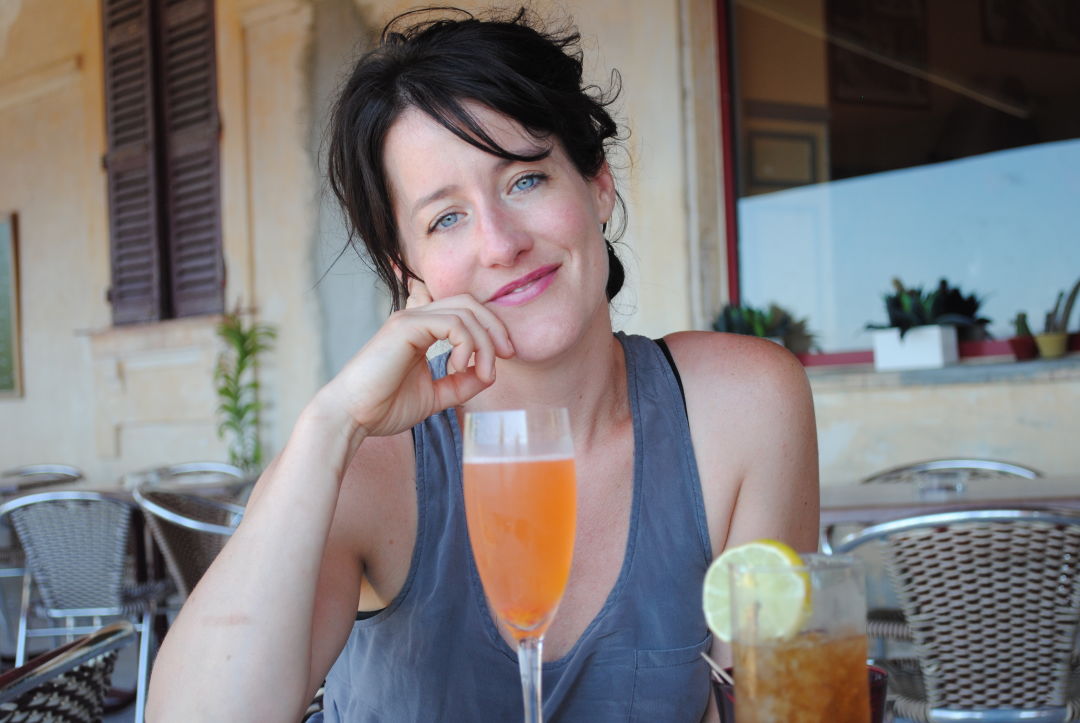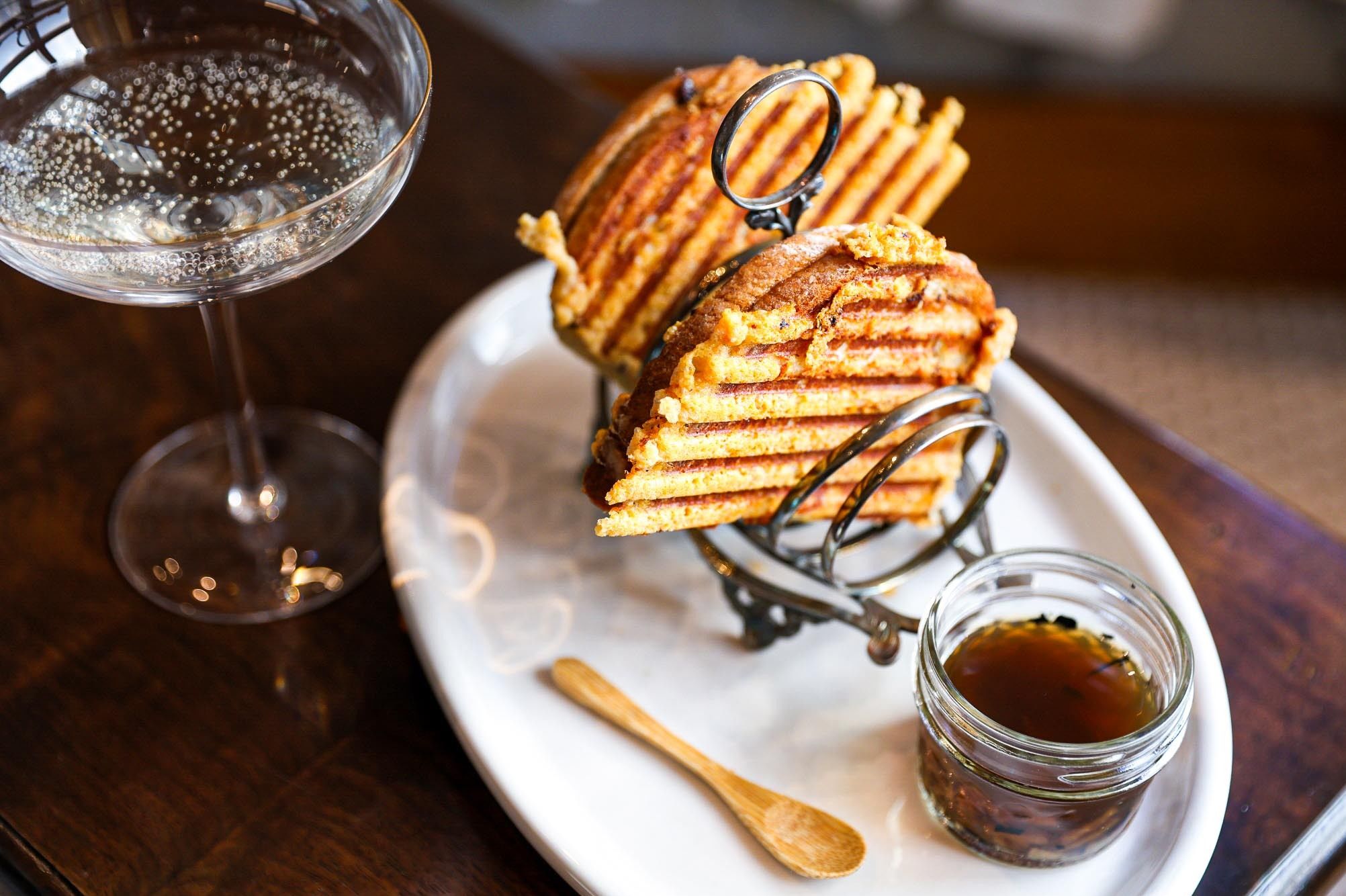In a Do-or-Die Situation, a New Portland Independent Restaurant Alliance Rises

Beast's Naomi Pomeroy
Image: Naomi Pomeroy
Two weeks ago, Beast owner Naomi Pomeroy was texting with Han Oak’s Peter Cho and Luke Dirks, co-founder of Submarine Hospitality. All three had prominent Portland restaurants still humming. But the writing was on the wall as Europe’s borders shuttered and social distancing jumped into the lexicon. The subtext to their fast-flying messages: What are we going to do? Who’s going to help us? How do we stay open and safe with no government mandate, ethical guideposts, or prophetic foresight?
After reaching out to their networks, Portland's first unofficial restaurant collective convened on March 13 at Fora, a back-room event space at SE Division’s Ava Gene’s, where roughly 70 cooks and restaurateurs traded fears and strategies. First came the nervous gallows humor: “Maybe we can cook in hazmat suits.” But the talk quickly turned to a subject all too familiar to the restaurant industry: survival. Conversations were powerful and concrete—a relief-or-die letter to Governor Kate Brown, signed by 150 Portland restaurant folks. By late Monday afternoon, Brown, whose lack of quick action frustrated workers, issued a mandate for restaurants to close except for takeout or delivery.
Pomeroy had already shut down her James Beard award-winning Beast on Killingsworth, telling PoMo: “I'm filing for unemployment.” But the industry veteran and pop-up pioneer isn’t sitting on the sidelines: Pomeroy, Dirks, and a cohort of Portland food folks have turned that impromptu gathering into a more organized collective: Portland Independent Restaurant Alliance (PIRA), a loosely-knit group that hopes to centralize information and give voice to local industry needs. In a matter of days, PIRA has a launched a website and agreed on an egalitarian mission: no egos, no official titles or roles, all hands on deck, all ideas on the table. In short: a return to Portland restaurant roots, the values and visions that birthed the maverick independent scene in the mid-aughts.
“Right now, a torrent of info is coming out,” says Andy Fortgang, co-owner and wine director at Le Pigeon and Canard. “A lot is redundant; a lot is hopes and promises and suggestions. The idea behind PIRA is to share and compare information and strategies; to distill and clarify information; to be a connector for the industry.” Another strength of the group is to give independent restaurants a voice that will be heard by local and national leaders. Already, the group felt it had a victory: acting together, loud and clear, Pomeroy believes, helped spur Brown’s decision.
Only one thing is clear right now: without government support, all is lost. “What’s happening in Congress is so important,” says Fortgang. “We can’t weather the storm like large corporations. Portland will be a completely different place if we don't get support from Congress. Nothing is more important.” Right now, restaurants are hoping for debt-free income replacement grants to cover suppliers, payrolls, and utilities, or at least zero-interest loans for those needs. That cash infusion, in turn, would allow the supply chain—farmers and fisherman to potters and cleaning companies—to keep flowing.
Meanwhile, Pomeroy has jumped in to help bring Portland and PIRA’s blueprint into the national conversation. “People in the general public and government don’t understand how small, independent restaurants work,” she says. “They think we’re rich! They see us on TV or cooking at festivals. They think we will just ride it out. All of these ideas are predicated on this concept that an we'll get a decree to go back out, the doors will swing open, and we'll be roaring with business.” That idea is a fantasy. Today, the James Beard Foundation declared that 60 percent of restaurants will not survive more than a month without some immediately funding, grants, or loans. Adds Pomeroy, “Whether your place is two months old or twenty years old, your cash this week pays last week’s bills. No one is sitting on a ton of reserves.”
Even before the crisis, a number of prominent restaurants were hanging on by their fingernails. “The margins are very tight,” explains Pomeroy. “This hit at the hardest months in Oregon: January, February, and March. The weather is shitty. No holidays. Just a crap time. We count on Valentine's Day to pay the bills for March.”
What can we do for now? “Start to think about what you value in your neighborhoods and cities,” says Pomeroy. “It sounds so cheesy. But call your reps. Tell them how much you love your local independent restaurants and the businesses that depend on them. Without your help, we won't be here.”




